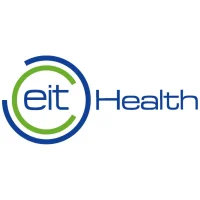For many healthcare providers, finding ways to accurately and efficiently bill patients for their services remains a challenge. Current estimates indicate that 30 to 40 percent of medical bills contain errors.
"Efficient medical billing is critical for optimising healthcare revenue cycle management and driving value-based patient care, but effectively streamlining the process is currently a pain point for the healthcare industry," according to Bhupender Singh, CEO of Intelenet Global Services.
The process of coding or classifying patient records according to the International Classification of Diseases (ICD) is one of the most complex transactions in healthcare revenue cycle management. Currently, this coding process is entirely manual and can lead to problems such as limited time for research and inflated costs of operations.
Automating the coding process is seen as an important step in ensuring that errors in medical billing are minimised. There are some automation solutions that are smart enough to apply the possibilities of natural language processing and machine learning to automate the coding process, Singh points out. These automation tools can transform the process of ICD coding by mapping the physician’s comments from a consultation against a multilevel medical dictionary. "Natural language processes enable such tools to extract the accurate code and, consequently, return a significant cost reduction in coding," Singh says.
What's more, automation can assist with other back-end tasks such as patient scheduling and claims processing, by increasing efficiency and restoring the balance between paperwork and people.
There is currently a huge amount of opportunity with back-end automation in the healthcare sector, Singh says. For example, appointments that are missed because of last-minute cancellations or patients simply not keeping appointments may translate to financial loss. Automating scheduling and sending appointment reminders to patients has been proven to increase the number of patients that doctors see each day, thus driving efficiency and more effective management.
Further, from a claims processing perspective, there are still a number of manual processes as you go through the entire revenue cycle, which can contribute to errors, Singh notes. "Automated solutions employing artificial intelligence can help organisations monitor and improve on key performance indicators," he says.
Source: Health Data Management
Image Credit: Pixabay
Latest Articles
Artificial Intelligence, AI, Revenue Cycle Management, medical bills
For many healthcare providers, finding ways to accurately and efficiently bill patients for their services remains a challenge. Current estimates indicate that 30 to 40 percent of medical bills contain errors.










